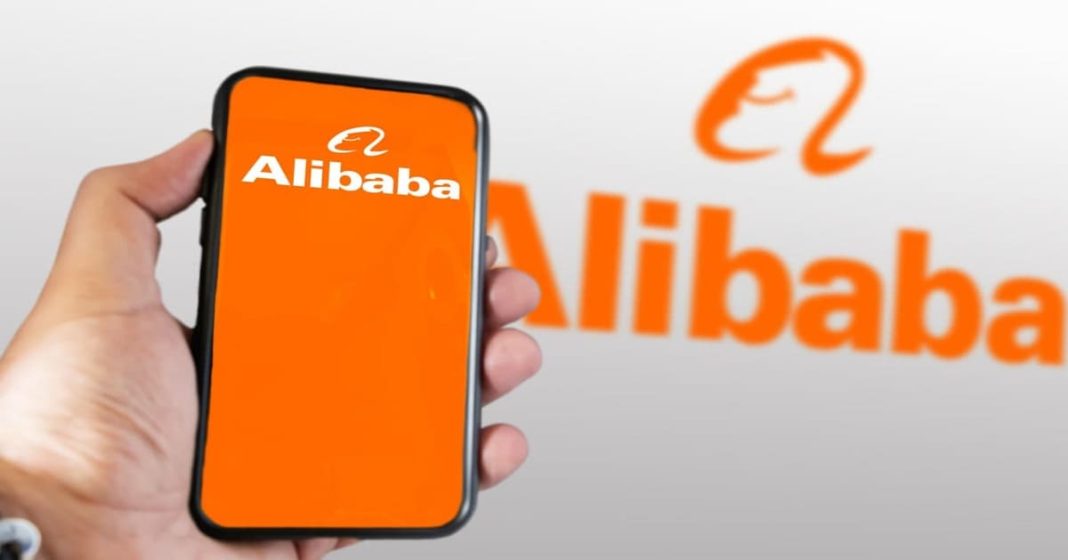Alibaba announced on Wednesday a partnership with Nvidia, global data center expansion plans, and new artificial intelligence products, as it positions AI as a core business priority alongside its traditional e-commerce operation.
The announcement helped send Hong Kong-listed shares of the Chinese company up nearly 10% to a four-year high on Wednesday, as investors welcomed its plan to double down on AI amid grueling competition with local peers that include DeepSeek and Tencent.
Alibaba Group Holding Ltd. will be partnering with NVIDIA in the field of physical AI with a focus on the 3D world. Alibaba’s cloud AI platform will integrate with NVIDIA’s physical AI software to provide users with data pre-processing, synthetic data generation, model training and evaluation, and robot reinforcement learning.
Geopolitics in Play: U.S.-China Tech Tensions
The agreement between NVIDIA and Alibaba comes amid heightened tensions between the U.S. and China. With the imposition of control on the export of advanced AI chips, NVIDIA had adopted a special HT20 chip designed to deal with the export limits. Chinese regulators are also pressuring companies like ByteDance, Alibaba, and Tencent to limit their buying of NVIDIA chips, while aiming to develop domestic alternatives for these chips. To reduce its reliance on Nvidia chips, Alibaba has begun using internally designed processors to train certain models.
Massive AI Investments and Full-Stack Ambitions
Alibaba Group Holding plans to increase its capital expenditures on artificial intelligence infrastructure from the original US$380 billion in the next three years. Eddie Wu Yong Ming, the chairman of Alibaba Cloud, said that the company is aiming to become the world’s leading full-stack AI service provider, from computing powers to models.
“The speed of AI industry development has far exceeded our expectations, and the industry’s demand for AI infrastructure has also far exceeded our expectations,” Alibaba CEO Eddie Wu said at its annual Apsara Conference on Wednesday.
Wu said that the world was expected to spend $4 trillion on AI computing infrastructures over the next five years. He anticipates that there would be five to six supercomputing platforms, sending a strong signal that Alibaba, whose Qwen is the world’s most popular open-source model, would be one of the remaining few. By 2032, Wu expects the company’s Global Data Strategy Center consumption to be 10 times higher than the 2022 levels. Alibaba has open-sourced more than 300 AI models since the launch of the first generation of KUAN in 2023, with over 600 million downloads and more than 170,000 derivative models built on Qwen.
The company also announced plans to open its first data centers in Brazil, France, and the Netherlands, with additional facilities planned for Mexico, Japan, South Korea, Malaysia, and Dubai over the coming year. This will expand Alibaba’s current network of 91 data centers across 29 regions worldwide.
Read more: Trump’s New H-1B Visa Policy Weakens Indian Rupee & Frustrates US Tech Industry
Qwen3-Max: Alibaba’s Trillion-Parameter Leap
Alibaba recently launched the QN3X model with over 1 trillion parameters. The QN3 model has enhanced coding and agent capabilities while achieving top performance across a variety of benchmarks, including domain knowledge, reasoning, coding agents, coding agent tasks, and multilingual understanding, according to Alibaba Cloud.
Its self-reported benchmark test shows that QN3X maxed or surpassed the best models from domestic and global competitors such as Cloud, Opus 4, DeepSeek 5, 3.1X, AI’s Grok 4, and GPT-5 Pro from OpenAI. The model is the latest in the QWEN3 series, first released in May, which initially consisted of models with 600 million to 235 billion parameters, with higher numbers indicating more intelligence. Ali Baba has also recently released QN3 Image Edit, an upgraded QN3 Coder for AI-assisted coding, and QN3 TTS Flash Speech, a model that produces expressive voices.
While Alibaba is seeking to develop its own chips, in the near future, it will continue to face pressure from volatile geopolitics and critical ups and downs in China-US relations.
With Additional Inputs from GVS desk














